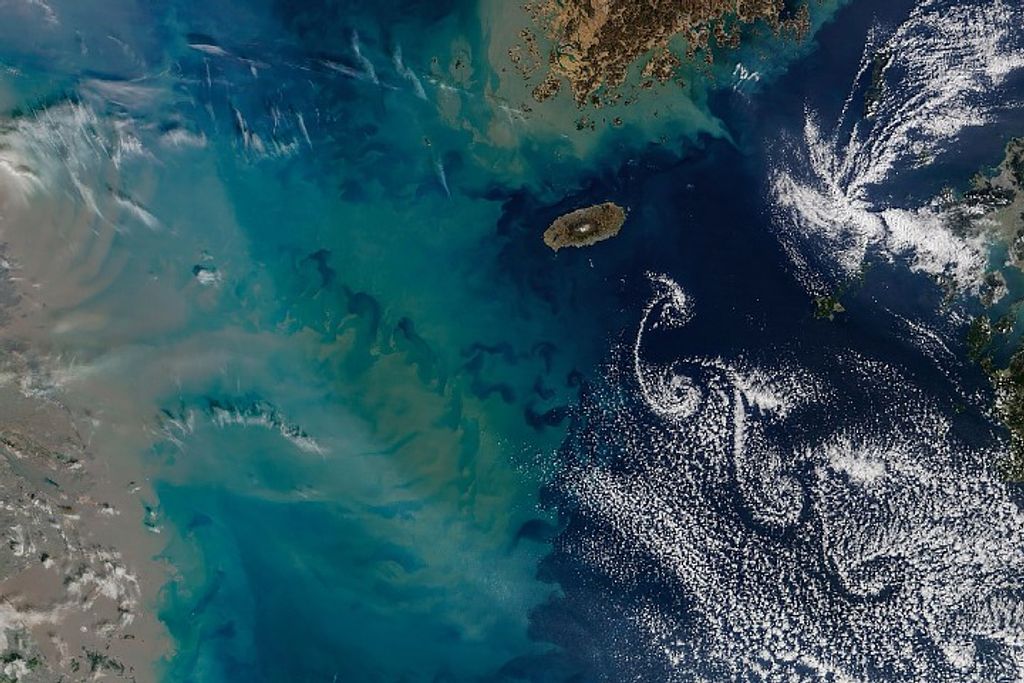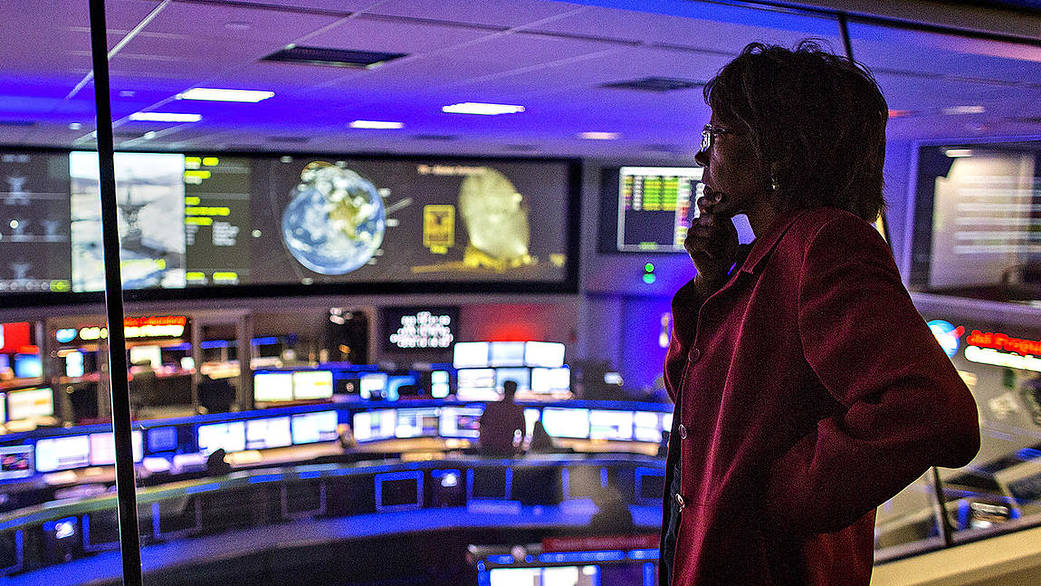In this image, Claudia Alexander, the project scientist overseeing NASA’s support role in the European Space Agency’s Rosetta mission, stands on the view deck of mission control at NASA’s Jet Propulsion Laboratory. Dr. Alexander’s role in the Rosetta mission, the first to land on a comet, was not her only triumph. She was also a project manager on NASA’s Galileo mission to Jupiter and, early on, was a member of the technical staff at the Jet Propulsion Laboratory. As a researcher, Alexander’s studies included the evolution and interior physics of comets, Jupiter and its moons, magnetospheres, plate tectonics, space plasma, the solar wind and the planet Venus. She wrote or co-authored 14 papers.
In 1993, the University of Michigan named her its Woman of the Year. A decade later, she received the Emerald Honor for Women of Color in Research & Engineering from Career Communications Group, publisher of Black Engineer and Information Technology Magazine, and she was featured in a 2007 article in Black Enterprise Magazine.
Claudia Alexander, a space scientist, didn’t always have stars in her eyes. There was a time she wanted to be a journalist. “But my parents were convinced engineering was the answer! I found it was a lot more fun to think about the flow of water in a river than water in the city sewer, so I went into Earth science and got a bachelor’s in geophysics at UC-Berkeley.” Alexander moved on for a master’s in geophysics and space physics at UCLA, and a Michigan Engineering PhD in Atmospheric, Oceanic and Space Sciences, specializing in space plasma. It turned out to be a good path. “I love working in the space program on one-of-a-kind engineering applications, like flying spacecraft, which is really a team effort. There are so many aspects of keeping a piece of engineering working and operating when it’s thousands of kilometers away from you. The ingenuity required is amazing.”
Sadly, Dr. Alexander passed away on July 11, 2015, after a 10-year battle with breast cancer. She was 56.
Her legacy lives on. In 2015, the scientists of the Rosetta mission found a new feature on comet 67P/Churyumov-Gerasimenko, naming it the “C. Alexander Gate” in her honor.
Learn more about her life and career.
Image Credit: Gina Ferazzi/Copyright 2014 Los Angeles Times. Reprinted with permission.


























